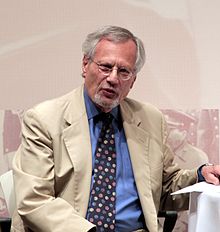PROGRAM
When Samuel Battle broke the color line as New York City’s first African American cop in the second decade of the twentieth century, he had to fear his racist colleagues as much as criminals. He had to be three times better than his white peers, and many times more resilient. His life was threatened. He was displayed like a circus animal. Yet, fearlessly claiming his rights, he prevailed in a four-decade odyssey that is both the story of one man’s courageous dedication to racial progress and a harbinger of the divisions between police and the people they serve that plague twenty-first-century America.
Realizing that his story was the story of race in New York across the first half of the century, Battle commissioned a biography to be written by none other than Langston Hughes, the preeminent voice of the Harlem Renaissance. But their eighty-thousand-word collaboration failed to find a publisher, and has remained unpublished since. Using Hughes’s manuscript, which is quoted liberally throughout this book, as well as his own archival research and interviews with survivors, Pulitzer Prize-winning journalist Arthur Browne has created an important and compelling social history of New York, revealed a fascinating episode in the life of Langston Hughes, and delivered the riveting life and times of a remarkable and unjustly forgotten man, setting Samuel Battle where he belongs in the pantheon of American civil rights pioneers.
Mr. Browne will be interviewed by Jack Rosenthal, Interim Director of Roosevelt House
Mr. Battle was also the father of Hunter alumna Charline E. Battle Cherot ’34.
SPEAKERS
Arthur Browne Editorial Page Editor, New York Daily News and author of "One Righteous Man"
Arthur Browne has written the first-draft history of New York for more than forty years. As a reporter and editor, he has chronicled six mayors, from Abe Beame through Bill de Blasio, and coauthored I, Koch, a biography of Mayor Ed Koch. Browne presently serves as the Daily News editorial page editor. In 2007, he led a team that won the Pulitzer Prize for editorials that documented the epidemic illnesses afflicting thousands of 9/11 rescue and recovery workers.
Jack Rosenthal Interim Director, Roosevelt House
Jack Rosenthal has had three related careers, in journalism, government and philanthropy.
He is an immigrant who came here from Tel Aviv as a child. He began in journalism as a copy boy at The Oregonian in Portland. In 1956, he graduated from Harvard, where he was an executive of The Harvard Crimson. He served in the U.S. Army and returned to The Oregonian as legal affairs reporter. In 1961, he went to Washington and served as special assistant to Attorneys General Robert F. Kennedy and Nicholas deB. Katzenbach. In 1966, the Washington press corps voted him the outstanding information officer in the U.S. Government.
He then served in a senior position in the Department of State, one that took him to Vietnam, Nigeria and elsewhere. In 1968, after returning to Harvard as a fellow at the Institute of Politics, he also served as the principal editor of the Kerner Commission report on urban riots. Later that year, he returned to journalism, first at Life Magazine and then at The New York Times as its first national urban affairs correspondent. In 1972, he received the Gerald Loeb Award for his reporting about the Outer Cities then developing in metropolitan areas.
He joined The Times editorial board in 1977, first as deputy editor and then as editor. In 1982, he won the Pulitzer Prize for distinguished editorial writing, the first such award for The Times in 64 years. From 1993 to 2000, he edited The Times Magazine. For 27 years, he wrote the On Language column each summer and occasionally served as The Times’s Public Editor.
In 2000, as new president of The Times Company Foundation, he launched Times Institutes for Journalists. So far, these immersion seminars, recently supported by Atlantic Philanthropies, have served more than 900 journalists from around the country. On September 11, 2001 the Foundation launched the 9/11 Neediest Fund which quickly raised $62 million, served some 30,000 families and created programs some of whose benefits endure.
In 2010, he accepted a senior fellowship at The Atlantic Philanthropies, managing its media portfolio and continuing journalism institutes on aging, education and immigration. In 2014, he was appointed Interim Director of the Roosevelt House Public Policy Institute at Hunter College.
Mr. Rosenthal is the founding chairman of ReServe, the nonprofit that connects skilled older adults with work at public and nonprofit service agencies in New York and, so far, in five other cities. He also serves on the advisory committee of the Thomas Jefferson Papers at Princeton and the boards of the Four Freedoms Park Conservancy, StoryCorps and the Lark Quartet. He and his wife, Holly Russell, a metal sculptor, live in Manhattan. They each have two children from prior marriages and share six grandchildren.





























